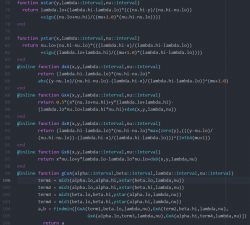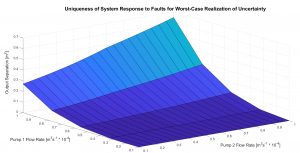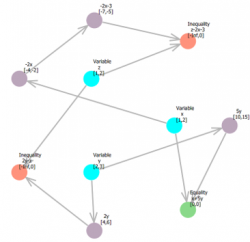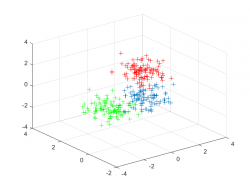The Process Systems and Operations Research Laboratory at UConn conducts research on topics including modeling, simulation and design, controls and operations, numerical methods and algorithms, and (global) optimization. Research topics are motivated by and directly linked to timely challenges from a spectrum of industries including food, energy, water and natural resources, chemicals, finance, and healthcare. The systems-level thinking combined with quantitative rigor enables the development of novel solutions to emerging problems.
Our research focus includes:
- optimal design under uncertainty,
- robust and worst-case design,
- performance and safety verification,
- process improvement and process intensification (enhanced sustainability),
- process retrofit and augmentation for renewable energy,
- rigorous model validation and discrimination,
with applications across:
- water treatment and desalination,
- renewable energy and power,
- industrial process heat,
- personalized medicine and healthcare, and
- thermofluid systems.
EAGO: Easy Advanced Global Optimization
Numerous sophisticated tools currently exist that allow for the deployment of meta-algorithms in a global optimization context (Pyomo, AMPL, etc.). These tools are generally built on advanced modeling languages (AMLs) and rely on well-developed optimization routines to solve subproblems. However, this accessibility comes at a cost. Lower-level optimization routines become obscured; as a result, a substantial barrier exists to the development novel optimization approaches... Read more
in a global optimization context (Pyomo, AMPL, etc.). These tools are generally built on advanced modeling languages (AMLs) and rely on well-developed optimization routines to solve subproblems. However, this accessibility comes at a cost. Lower-level optimization routines become obscured; as a result, a substantial barrier exists to the development novel optimization approaches... Read more
Tumor Vasculature Modeling and Validation
Blood flow in the vessels over the tumor domain is often complicated, exhibiting various phenomina such as cycles,  shunts and dead ends. In order to study the correlation between the vascular and interstitial flows for effective drug delivery, a general physics-based model which includes the tumor vasculature connecting upstream and downstream blood-flow, is required. Our work in this area seeks to enhance the predictive capabilities of models using clinical data and... Read more
shunts and dead ends. In order to study the correlation between the vascular and interstitial flows for effective drug delivery, a general physics-based model which includes the tumor vasculature connecting upstream and downstream blood-flow, is required. Our work in this area seeks to enhance the predictive capabilities of models using clinical data and... Read more
Robust Active Fault Detection and Isolation in Thermal Fluid Systems
This research focuses on the utilization of model-based active fault detection and isolation (FDI) techniques for  optimal design of maintenance tests under uncertainty. The goal here is to improve the robustness of system fault diagnostics (i.e., reliability and maintainability) to uncertainty, subsequently improving the cost of maintenance throughout a system’s lifecycle... Read more
optimal design of maintenance tests under uncertainty. The goal here is to improve the robustness of system fault diagnostics (i.e., reliability and maintainability) to uncertainty, subsequently improving the cost of maintenance throughout a system’s lifecycle... Read more
Robust Optimization of Large-Sparse Systems
The prevalence of multi-billion-dollar mega-projects have substantially exacerbated the potential risks associated with chemical process safety and environmental failures. The use of model-based approaches to ensure rigorous satisfaction of safety and environmental constraints remains an open area of research within the process systems community. For the general nonlinear case, these problems require the solution of a series of global optimization problems... Read more
risks associated with chemical process safety and environmental failures. The use of model-based approaches to ensure rigorous satisfaction of safety and environmental constraints remains an open area of research within the process systems community. For the general nonlinear case, these problems require the solution of a series of global optimization problems... Read more
Clinical Data Analysis and Validation
Breast cancer patients require systematical and pertinent therapeutic treatment to achieve better pathologic response.  In order to develop and improve more valid therapeutic instructions, we take advantage of mathematical methods to analyze present clinical data to identify patients information for better cancer treatments. Dealing with the raw dataset within patients' different personal or biomarker information, clustering approaches are applied to partition these data into... Read more
In order to develop and improve more valid therapeutic instructions, we take advantage of mathematical methods to analyze present clinical data to identify patients information for better cancer treatments. Dealing with the raw dataset within patients' different personal or biomarker information, clustering approaches are applied to partition these data into... Read more